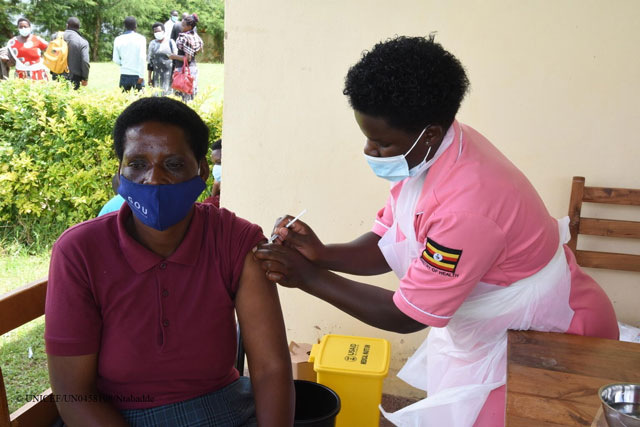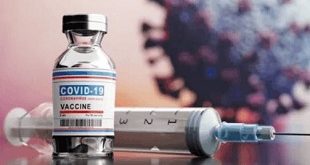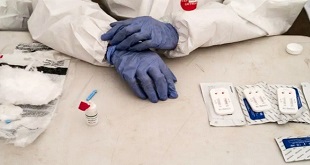
Kampala, Uganda | THE INDEPENDENT | Kampala resident’s willingness to have a Coronavirus vaccine is increasing, according to a new report on attitudes towards COVID-19 vaccines. A COVID-19 vaccine is the key to beating the virus that has so far killed close to two thousand Ugandans.
A survey conducted in Kampala which ran between the beginning of last week until the beginning of this week found that almost 7 in 10 people are willing take a vaccine if it was offered to them now.
The findings seem to confirm the recent surge by Kampala residents at vaccination points as the health Ministry and partners begun administering second jabs of the vaccine to those that had earlier been vaccinated.
Led by Twaweza’s Sauti Za Wanainchi team, more than 610 residents of Kampala, which has also highlighted major differences in attitudes towards vaccines around the city.
According to the findings, almost all citizens (96%) are aware that vaccinations for Covid-19 exist and that they are in use in Uganda (93%).
Twaweza’s Senior Programme Officer for Sauti Za Wanainchi in Uganda says despite lots of mis- and dis-information around vaccinations, 7 out of 10 Kampala residents (68%) say they are willing to be vaccinated.
Women, business owners and older Kampala residents are more willing to be vaccinated whereas those who earn their income from agriculture are less willing.
Among those who are unwilling, the main issues are around trust: 19% of Kampala residents do not trust any Covid-19 vaccine, 12% say they are not yet proven to be effective and 10% say they are not safe.
Awareness about vaccines and vaccination
According to Nanyanzi, there was slightly lower awareness among the older residents of Kampala and those with lower levels of education. This, according to Nanyanzi calls for more targeted awareness of the benefits of the vaccines and vaccines safety among the older persons and those with lower levels of education.
The survey also found that 4 out of 10 say the government should do more to raise awareness of the benefits of vaccination (37%), while 2 out of 10 (17%) say the distance to vaccination points need to be reduced and 1 out of 10 (11%) say the country needs to import more vaccines.
But Kampala residents were divided on whether the government is doing well overall at securing vaccines for citizens . Two out of 10 (22%) say they are doing (very) well while 3 out of 10 (27%) say they are doing (very) badly. A much larger proportion think the government is doing ok at securing vaccinations (44%).
At the same time, residents of Kampala seem to be more positive about international efforts to ensure poor countries get access to vaccines: 3 out of 10 (34% say they are doing (very) well while 1 out of 10 (13%) say they are doing (very) badly. But most Kampalans are uninformed about the work of the international community in this area (52%).
Violet Alinda, Twaweza Uganda Country Lead and Director of Voice and Participation, said It is encouraging to see high levels of willingness to be vaccinated among Kampala residents.
” As we continue to be battered by Covid-19, vaccination appears to be the most effective solution. However, citizens have a right to be concerned – misinformation alongside commercial exploitation of the crisis have come together to create a cocktail of false impressions and genuine safety concerns around the vaccinations.”
Reacting to the survey findings, Health Ministry’s Assistant. Commissioner & Program Manager, Uganda National Expanded Program on Immunizations, Dr. Alfred Driwale, said he was happy about the findings because they were very informative and factual.
“The Ugandan Government is working tirelessly to ensure vaccines are available. At the same time, we are redoubling our efforts to limit the spread of false information and to take action against those who seek to take advantage of the crisis presented by Covid-19. We are calling on citizens to pay attention to government-endorsed, scientifically-verified information around vaccines.”
The findings come at the time when the health ministry is fighting a battle against anti-vaccines campaigners who have taken on social media and other communication platforms urging Ugandans not get vaccinated against the deadly coronavirus.
****
URN
 The Independent Uganda: You get the Truth we Pay the Price
The Independent Uganda: You get the Truth we Pay the Price

